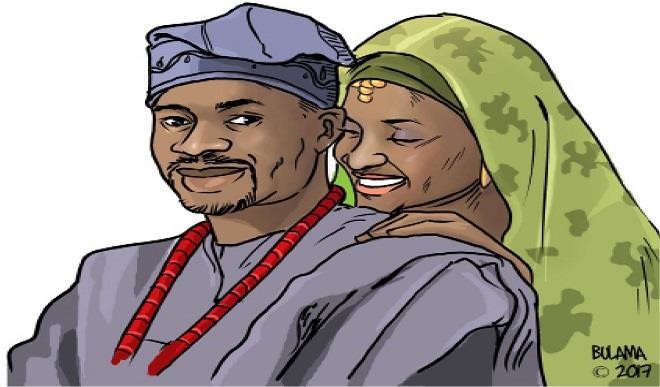Should ethnicity be an issue in marriage?
“I wonder when inter-tribal marriages will be fully accepted in the society. My fiancée and I had to call it quits two weeks ago simply because his people wouldn’t allow him to marry me because I am a Yoruba woman and he is an Igbo guy. They called me an ‘osu’ to my face and […]


“I wonder when inter-tribal marriages will be fully accepted in the society. My fiancée and I had to call it quits two weeks ago simply because his people wouldn’t allow him to marry me because I am a Yoruba woman and he is an Igbo guy. They called me an ‘osu’ to my face and hearing. It’s one of the toughest times of my life as he was everything to me. To think that it was just our tribal barrier that ended the relationship hurts.” 30-year-old Bosun narrates.
Amaka, 39-year-old accountant, narrates her story also. “I am Igbo and married to a Yoruba man. During courtship, I saw the tribal difference as no big deal but five years after marriage now, it’s beginning to be a big deal for us, especially him. Any time we have a misunderstanding, he constantly reminds me that I am not Yoruba by saying ‘I caused all this for myself by not marrying a Yoruba woman’. It hurts and makes me inferior. Was I wrong to have married outside my tribe? Does not coming from the same tribe with my hubby make me less a woman?”
Hajiya Hafsat Abdulkarim, an accountant, says “If you happen to be married and face such a situation, turn the tables around and take a stand. The man has no right to torment a woman he married emotionally like that. He knew they were both from different tribes before the marriage. I am Yoruba and he has no right to speak to her like that. On what basis does he feel a sense of superiority? Who died and made our tribe superior to others? Some Yorubas, Igbos and Hausas who marry Yorubas still have issues.”
Aisha Ahmed, 39-year-old lawyer, says the man is being inconsiderate. “The lady is the one who changed her name, moved from East to the West, and accepted a new tribe and their different culture, for him nothing changed. So, there is no reason for him to blackmail her emotionally. Rather he should appreciate her many sacrifices. He should appreciate and reciprocate the love you had for him and his tribe. It is never okay for a man to emotionally torment a lady who changed everything about her for him.”
Aisha went on to say, “People mostly forget that we are first human beings before any tribe, religion or race, which is mostly what is used to psychologically separate us. Nobody is a second class citizen or inferior to the other; we are all unique for who we are. People intermarry both at national and International levels, so why all the unnecessary talk about being from another tribe or the other. I’ll advise her not to be deterred by his outburst or regret marrying outside her tribe.”
Mr. David Falola, 40-year-old PR consultant, says “The greatest weapon of the oppressor is in the mind of the oppressed. The day he realizes that the Yoruba/Igbo rant has no effect on you he will stop. I married a non-Yoruba woman, when people try to intimidate her about her tribe she will always tell them that Yoruba blood is in her veins. That was how she conquered them. Let her know that she is better than all the Yoruba ladies her husband dated and that’s why he settled for her. Marriage is serious business and I don’t think he settled in it just for fun. He is stuck with you tribe or no tribe. It beats my imagination how even educated people associate successful marriage with tribe, religion, race, colour and nationality. The society needs to move away from such thinking.”
